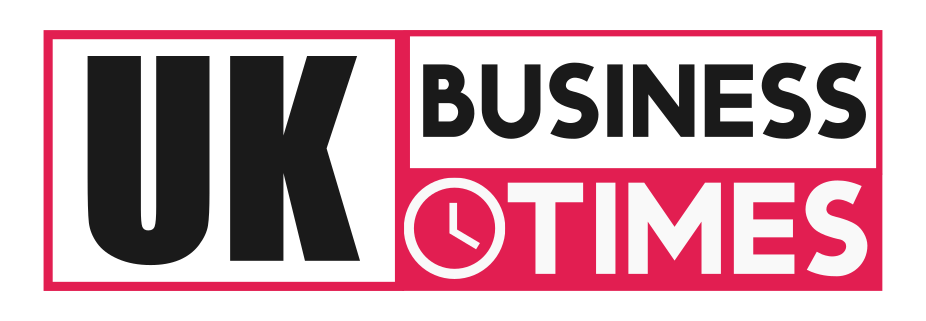In an age where eCommerce giants dominate the online shopping landscape, one British-based marketplace has steadily carved a niche for itself by offering surprisingly low prices, OnBuy.
Consumers across the UK are increasingly drawn to this platform, curious about how it manages to sell everyday goods, electronics, homeware, and more at prices that often undercut industry titans. So, the question arises: why is OnBuy so cheap in the UK?
The answer lies not in compromise, but in a well-structured, seller-first business model, transparent operations, and a focused strategy that prioritises both affordability and fairness.
This article explores the mechanics behind OnBuy’s low-cost appeal and why British shoppers are embracing this alternative online marketplace.
What Is OnBuy and How Does It Work in the UK Marketplace?

OnBuy is a UK-founded online marketplace that operates on a third-party seller model, meaning it doesn’t stock or sell any products directly. Instead, it provides a platform for thousands of independent retailers to list and sell their goods to UK customers.
Launched with the intention to challenge global marketplaces, OnBuy differentiates itself through its transparent policies, fair competition environment, and unwavering focus on the UK market.
It offers a broad range of products across categories such as tech, toys, beauty, garden supplies, and more, many of which are priced lower than competing platforms.
Unlike some marketplaces that prioritise large vendors or push their own brands, OnBuy provides equal opportunities for all approved sellers, whether small local retailers or large-scale merchants. This structure encourages diversity in listings and allows sellers to be more flexible with their pricing.
Why Are Prices on OnBuy Often Lower Than Other Marketplaces?
The low pricing strategy employed by OnBuy is the result of several strategic decisions that set the platform apart from its competitors.
Lower Operating Costs for Sellers
At its core, OnBuy’s pricing advantage is largely due to its cost-efficient structure. Unlike global platforms that charge high listing and selling fees, OnBuy keeps its seller commissions competitively low. This gives merchants more room to reduce prices without affecting their margins significantly.
Intense Seller Competition
With thousands of sellers competing on similar products, the marketplace naturally encourages price competitiveness. Since OnBuy does not give special treatment to larger sellers, smaller retailers also have a fair shot at reaching customers, often leading to more competitive pricing across the board.
No Product Prioritisation or Paid Ranking Bias
Unlike platforms that allow sellers to pay for prominent visibility or placement, OnBuy maintains a neutral search system.
This means that products rise or fall in the rankings based on relevance and pricing rather than who paid the most, giving price-driven consumers more genuine access to the best deals.
How Do OnBuy’s Low Seller Fees Influence Product Prices?

A defining feature of OnBuy’s model is its seller-friendly fee structure. This directly impacts the pricing that shoppers see on the platform.
Standard Commission Rates
OnBuy charges sellers a standard commission fee that ranges typically between 5% and 9%, depending on the product category. Compared to platforms that may charge up to 15% or more, this represents a significant cost saving for merchants.
| Marketplace | Average Commission Rate | Direct Product Sales |
|---|---|---|
| OnBuy | 5% – 9% | No |
| Amazon UK | 8% – 15% | Yes |
| eBay UK | 10% – 12.8% | No |
The table clearly illustrates how OnBuy’s model allows sellers to retain more of their profits, which often results in better pricing for end customers.
No Listing Fees or Upfront Costs
Sellers on OnBuy only pay when they make a sale. This “success-only” fee model reduces the barrier to entry for new or small retailers and encourages experimentation with price drops and promotional strategies, further contributing to low product pricing.
What Marketing Tools Does OnBuy Provide to Sellers at Low Cost?
One of OnBuy’s key strengths is its ability to support sellers with marketing tools that require minimal financial investment.
The Boost feature helps increase product visibility by allowing sellers to bid a small percentage of their revenue, paying only when a sale is made, making it a low-risk way to promote items.
Similarly, the Sale Price option lets sellers clearly display discounts on their listings, encouraging clicks and conversions without gimmicks.
These tools help sellers drive traffic, improve sales, and offer competitive prices to customers efficiently.
| Tool | Purpose | Cost Structure |
|---|---|---|
| Boost | Increase visibility in search | % of revenue, only on sale |
| Sale Price | Display promotional pricing | Free to set, no extra cost |
These tools ensure that even sellers with limited marketing budgets can compete effectively, offering low prices to consumers in the process.
How Does OnBuy Encourage Fair Competition Among Sellers?

Fairness is a core principle of OnBuy’s marketplace, ensuring that all sellers compete on equal footing. The platform avoids competing with its own sellers and does not favour any particular retailer, fostering a balanced and transparent environment.
Key Features Supporting Fair Competition:
- No In-House Products: OnBuy does not sell its own branded goods, eliminating conflicts of interest.
- Equal Access to Tools and Visibility: Every seller can use the same marketing and pricing tools, creating a level playing field.
- Merit-Based Seller Ratings: Customer feedback and performance determine visibility, rewarding quality service over financial power.
This approach encourages high-quality service and fair pricing, ensuring buyers benefit from a marketplace where good performance, not spending ability, drives success. Sellers of all sizes can compete fairly and grow on their merits.
Is OnBuy a Legitimate and Trustworthy Platform?
Many consumers wonder if OnBuy’s lower prices compromise quality or security, but the platform has proven itself as a legitimate and trustworthy shopping destination for UK shoppers.
All transactions are securely processed, with widely accepted payment methods ensuring financial data protection and giving customers confidence.
OnBuy also offers clear customer protection policies, including a straightforward refund and dispute resolution process, so any issues with orders can be resolved efficiently through the platform.
Additionally, sellers undergo a verification process before listing products, which helps reduce fraud and ensures buyers receive legitimate, high-quality items. These measures combine to make OnBuy a secure and reliable choice for online shopping in the UK.
What Is the Business Model Behind OnBuy’s Growth-Focused Strategy?
OnBuy isn’t just another marketplace, it’s a platform built with seller growth and long-term success in mind.
Revenue Through Volume, Not High Margins
OnBuy focuses on attracting a large number of sellers and sales, rather than maximising profits from individual transactions. This volume-based model reduces the need for high commission rates, resulting in better prices for shoppers.
No Warehousing or Fulfilment Costs
By not offering warehousing or its own delivery network, OnBuy avoids the overheads that often push up costs on other platforms. This lean structure benefits both sellers and buyers.
UK-Centric Growth Model
Unlike global marketplaces that dilute their focus across multiple regions, OnBuy concentrates on growing its UK market share. This allows it to tailor policies, support, and marketing to meet local needs more effectively.
How Does OnBuy Support eCommerce Sellers to Keep Costs Down?

OnBuy’s infrastructure is built to make it easy and economical for sellers to succeed, and that benefits consumers directly.
- Integrated Support: Sellers receive detailed guides, dedicated support, and a dashboard that simplifies account management.
- Access to Real-Time Data: OnBuy provides insights into customer behaviour and product performance, helping sellers adjust pricing competitively.
- No Expensive Advertising Mandates: Unlike other platforms that require sellers to invest in costly ad campaigns for visibility, OnBuy allows sellers to promote organically or via affordable tools.
This environment encourages businesses to pass savings on to consumers, helping maintain lower price points across the marketplace.
Can Shoppers Trust the Quality of Products on OnBuy Despite Lower Prices?
While low prices can sometimes raise concerns about product quality, OnBuy has implemented several measures to ensure shoppers can buy with confidence.
All sellers undergo a vetting process, meaning only approved vendors are allowed to list products on the platform. Performance monitoring is also in place, with customer ratings used to continually assess seller reliability; those who underperform are flagged or removed.
In addition, buyers are protected by UK consumer rights laws as well as OnBuy’s own returns and refunds policies, allowing them to return or exchange items if needed.
By combining seller approval, ongoing performance oversight, and strong customer protection policies, OnBuy provides a platform where affordability does not compromise quality, giving shoppers peace of mind while enjoying lower prices.
Conclusion
OnBuy’s low prices are not a result of inferior quality or deceptive practices. Rather, they are the product of a well-considered business model that prioritises transparency, seller success, and competitive fairness.
With its UK-focused strategy, low commission fees, and equal opportunity approach, OnBuy is redefining what affordable online shopping can look like for British consumers.
As more people in the UK search for value without compromising trust, OnBuy continues to emerge as a legitimate and attractive alternative to larger eCommerce giants.
Its approach not only benefits buyers through lower prices but empowers sellers to grow in a marketplace built on fairness and function.
Frequently Asked Questions
How does OnBuy handle customer complaints and returns?
OnBuy offers a structured resolution process where customers can report issues directly through the platform. Buyers are protected by UK consumer laws and OnBuy’s internal dispute policies.
Does OnBuy sell directly to customers or through third-party sellers?
OnBuy operates exclusively as a third-party marketplace. It does not sell its own products, which allows for a fairer and more balanced competitive environment for independent retailers.
Are there hidden costs when shopping on OnBuy?
OnBuy is transparent with its pricing. Delivery fees are clearly displayed before checkout, and there are no hidden platform charges for buyers.
How long has OnBuy been operating in the UK?
OnBuy has been active since 2016 and has since gained strong traction in the UK eCommerce market, especially as an alternative to Amazon and eBay.
What are some product categories where OnBuy offers the best value?
Shoppers often find excellent deals in categories like electronics, household goods, toys, and beauty products.
Does OnBuy offer any loyalty or reward programmes?
While OnBuy does not currently have a formal loyalty programme, frequent discounts and promotional pricing offer ongoing value to repeat customers.
How does OnBuy ensure seller reliability and product authenticity?
All sellers undergo verification before listing products. OnBuy monitors seller performance and uses customer feedback to ensure a high level of service and product authenticity.
{
“@context”: “http://schema.org/”,
“@type”: “FAQPage”,
“mainEntity”: [
{
“@type”: “Question”,
“name”: “How does OnBuy handle customer complaints and returns?”,
“acceptedAnswer”: {
“@type”: “Answer”,
“text”: “OnBuy offers a structured resolution process where customers can report issues directly through the platform. Buyers are protected by UK consumer laws and OnBuy’s internal dispute policies.”
}
},
{
“@type”: “Question”,
“name”: “Does OnBuy sell directly to customers or through third-party sellers?”,
“acceptedAnswer”: {
“@type”: “Answer”,
“text”: “OnBuy operates exclusively as a third-party marketplace. It does not sell its own products which allows for a fairer and more balanced competitive environment for independent retailers.”
}
},
{
“@type”: “Question”,
“name”: “Are there hidden costs when shopping on OnBuy?”,
“acceptedAnswer”: {
“@type”: “Answer”,
“text”: “OnBuy is transparent with its pricing. Delivery fees are clearly displayed before checkout and there are no hidden platform charges for buyers.”
}
},
{
“@type”: “Question”,
“name”: “How long has OnBuy been operating in the UK?”,
“acceptedAnswer”: {
“@type”: “Answer”,
“text”: “OnBuy has been active since 2016 and has since gained strong traction in the UK eCommerce market especially as an alternative to Amazon and eBay.”
}
},
{
“@type”: “Question”,
“name”: “What are some product categories where OnBuy offers the best value?”,
“acceptedAnswer”: {
“@type”: “Answer”,
“text”: “Shoppers often find excellent deals in categories like electronics household goods toys and beauty products.”
}
},
{
“@type”: “Question”,
“name”: “Does OnBuy offer any loyalty or reward programmes?”,
“acceptedAnswer”: {
“@type”: “Answer”,
“text”: “While OnBuy does not currently have a formal loyalty programme frequent discounts and promotional pricing offer ongoing value to repeat customers.”
}
},
{
“@type”: “Question”,
“name”: “How does OnBuy ensure seller reliability and product authenticity?”,
“acceptedAnswer”: {
“@type”: “Answer”,
“text”: “All sellers undergo verification before listing products. OnBuy monitors seller performance and uses customer feedback to ensure a high level of service and product authenticity.”
}
}
]
}







